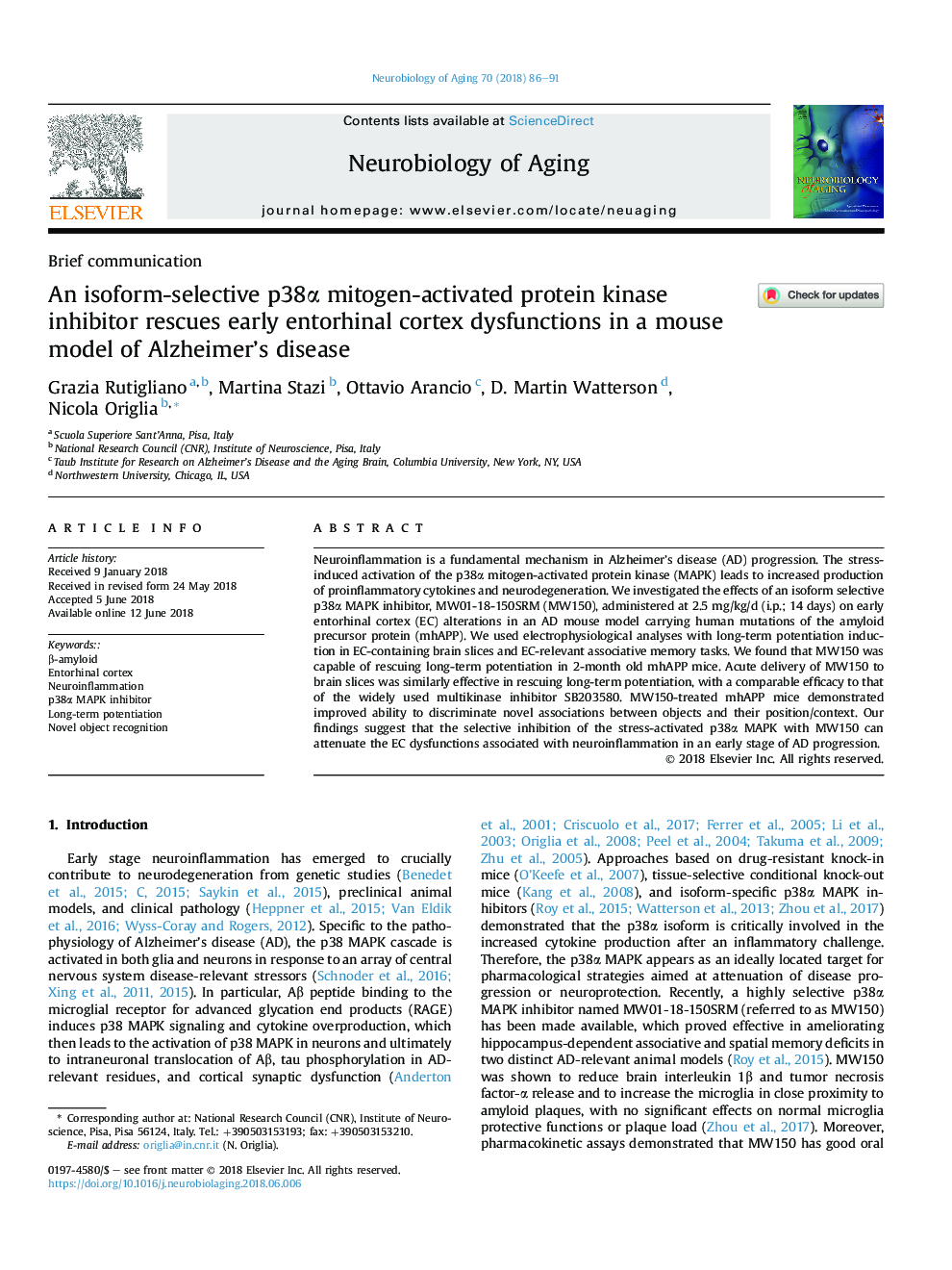| Article ID | Journal | Published Year | Pages | File Type |
|---|---|---|---|---|
| 6802872 | Neurobiology of Aging | 2018 | 6 Pages |
Abstract
Neuroinflammation is a fundamental mechanism in Alzheimer's disease (AD) progression. The stress-induced activation of the p38α mitogen-activated protein kinase (MAPK) leads to increased production of proinflammatory cytokines and neurodegeneration. We investigated the effects of an isoform selective p38α MAPK inhibitor, MW01-18-150SRM (MW150), administered at 2.5 mg/kg/d (i.p.; 14 days) on early entorhinal cortex (EC) alterations in an AD mouse model carrying human mutations of the amyloid precursor protein (mhAPP). We used electrophysiological analyses with long-term potentiation induction in EC-containing brain slices and EC-relevant associative memory tasks. We found that MW150 was capable of rescuing long-term potentiation in 2-month old mhAPP mice. Acute delivery of MW150 to brain slices was similarly effective in rescuing long-term potentiation, with a comparable efficacy to that of the widely used multikinase inhibitor SB203580. MW150-treated mhAPP mice demonstrated improved ability to discriminate novel associations between objects and their position/context. Our findings suggest that the selective inhibition of the stress-activated p38α MAPK with MW150 can attenuate the EC dysfunctions associated with neuroinflammation in an early stage of AD progression.
Related Topics
Life Sciences
Biochemistry, Genetics and Molecular Biology
Ageing
Authors
Grazia Rutigliano, Martina Stazi, Ottavio Arancio, D. Martin Watterson, Nicola Origlia,
